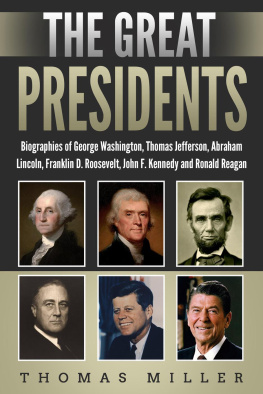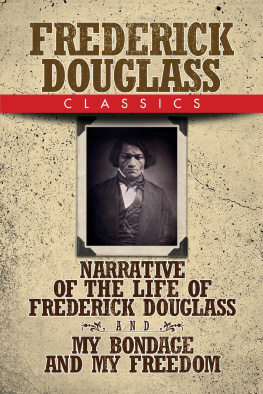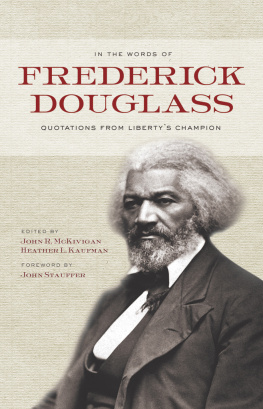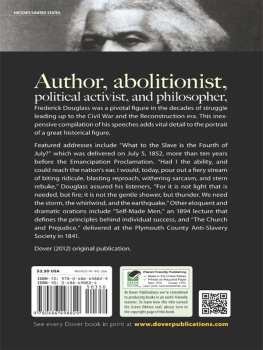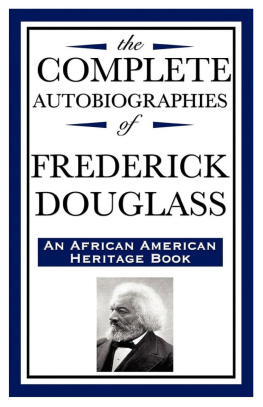BIOGRAPHIES of the NEW AMERICAN NATION
GEORGE WASHINGTON, THOMAS JEFFERSON, FREDERICK DOUGLASS, AND MORE
IMPACT ON AMERICA: COLLECTIVE BIOGRAPHIES
BIOGRAPHIES of the NEW AMERICAN NATION
GEORGE WASHINGTON, THOMAS JEFFERSON, FREDERICK DOUGLASS, AND MORE
Edited by Sherman Hollar

Published in 2013 by Britannica Educational Publishing
(a trademark of Encyclopdia Britannica, Inc.)
in association with Rosen Educational Services, LLC
29 East 21st Street, New York, NY 10010.
Copyright 2013 Encyclopdia Britannica, Inc. Britannica, Encyclopdia Britannica, and the
Thistle logo are registered trademarks of Encyclopdia Britannica, Inc. All rights reserved.
Rosen Educational Services materials copyright 2013 Rosen Educational Services, LLC.
All rights reserved.
Distributed exclusively by Rosen Educational Services.
For a listing of additional Britannica Educational Publishing titles, call toll free (800) 237-9932.
First Edition
Britannica Educational Publishing
J.E. Luebering: Director, Core Reference Group, Encyclopdia Britannica
Adam Augustyn: Assistant Manager, Encyclopdia Britannica
Anthony L. Green: Editor, Comptons by Britannica
Michael Anderson: Senior Editor, Comptons by Britannica
Andrea R. Field: Senior Editor, Comptons by Britannica
Sherman Hollar: Senior Editor, Comptons by Britannica
Marilyn L. Barton: Senior Coordinator, Production Control
Steven Bosco: Director, Editorial Technologies
Lisa S. Braucher: Senior Producer and Data Editor
Yvette Charboneau: Senior Copy Editor
Kathy Nakamura: Manager, Media Acquisition
Rosen Educational Services
Jeanne Nagle: Senior Editor
Nelson S: Art Director
Cindy Reiman: Photography Manager
Karen Huang: Photo Researcher
Brian Garvey: Designer, Cover Design
Introduction by Jeanne Nagle
Library of Congress Cataloging-in-Publication Data
Biographies of the new American nation: from George Washington to Frederick Douglass/edited by Sherman Hollar.1st ed.
p. cm.(Impact on America: collective biographies)
Includes bibliographical references and index.
ISBN 978-1-61530-720-3 (eBook)
1. United StatesHistory1783-1865BiographyJuvenile literature. I. Hollar, Sherman.
E302.5.B56 2013
973.4dc23
2011045403
Cover, p. 3 Comstock/Thinkstock; cover, p. 3 (insets) Library of Congress Prints and Photographs Division (George Washington), J. R. Eyerman/Time & Life Pictures/Getty Images (Frederick Douglass); back cover www.istockphoto.com/Sodafish bvba; interior background images www.istockphoto.com/oliopi (geometric), www.istockphoto.com/Bill Noll (floral)
CONTENTS

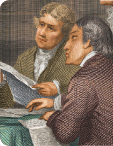
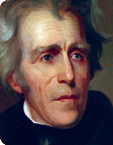

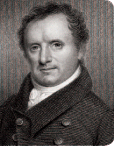
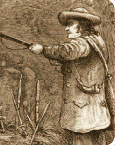
INTRODUCTION
T he American Revolutionary War brought forth an independent nation known as the United States. Once the fighting was over and freedom declared, the job of forming and sustaining the more perfect union envisioned in the Preamble to the U.S. Constitution landed squarely on the shoulders of the fledgling countrys citizens. The stories of these men and women are an important part of U.S. history. This book presents the biographies of several statesmen, explorers, warriors, and social reformers who helped shape the new American nation.
A number of revolutionary leaders gained important positions within the new federal government, including the presidency. In the latter group were George Washington, John Adams, and Thomas Jefferson. The nations first president, Washington had proven himself a patriot as commander-in-chief of the Continental Army, then as the officer who oversaw the writing of the Constitution. Adams and Jefferson each had served under Washingtonas vice president and secretary of state, respectivelybefore being elected president themselves. All three brought their personal and political beliefs to bear on the evolving U.S. government.

Among those who built the New American Nation were the presidents, including George Washington (center) and (clockwise) John Adams, James Madison, John Quincy Adams, Martin Van Buren, James Tyler, James Polk, William Harrison, Andrew Jackson, James Monroe, and Thomas Jefferson. MPI/Archive Photos/Getty Images
Other statesmen guided the United States toward its unique brand of democracy through persuasion and compromise. James Madison, John Jay, and Alexander Hamilton urged the pursuit of liberty through majority rule in essays that together are known as The Federalist Papers. In 1830 Senator Daniel Webster spoke eloquently (and at great length) in defense of the Constitution and the power of the federal government, which made him a national hero in the process. When tariffs and the subject of slavery were creating a serious rift between northern and southern states, Henry Clay repeatedly championed compromise legislation that kept the nation united for decades before the country erupted in civil war.
Expansion was a crucial element in the development of the new American nation. In 1804 President Thomas Jefferson sent Meriwether Lewis and William Clark on a westward expedition to explore territory recently acquired in the Louisiana Purchase and establish a path to the Pacific Ocean. The journey was also meant to establish ties with Native American tribes. Shoshone maiden Sacagawea joined the expedition as an interpreter. With her assistance, Lewis and Clark were able to gain the help from Western Shoshone tribes that made the completion of their mission possible.
Not all interactions with Native Americans were as successful. Anger at the loss of land to white settlers resulted in native uprisings, led by Indian chiefs such as Tecumseh and Osceola, throughout the 1800s. Relations between whites and African Americans at this time were also troublesome, to say the least. Nat Turner led a slave revolt in 1831 Virginia, which strengthened the intensity of the arguments on both sides of the slavery debate until the matter reached a boiling point during the American Civil War.
The treatment of groups such as Native and African Americans was protested by social reformers of the age. Chief among these reformers were the abolitionists, who were against slavery. William Lloyd Garrison, a leading abolitionist, used the power of his newspaper, the Liberator, to spread his anti-slavery message. The work of former slave and brilliant speaker Frederick Douglass also helped put an end to slavery in the United States.
Next page

